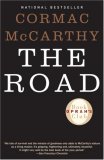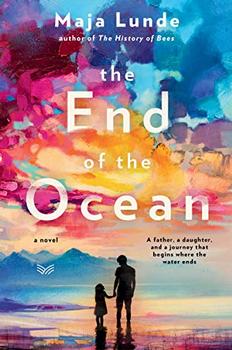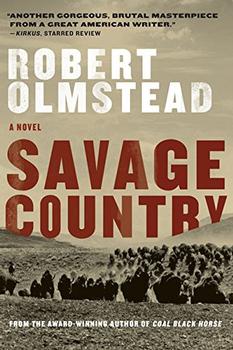Summary | Excerpt | Reading Guide | Reviews | Beyond the book | Read-Alikes | Genres & Themes | Author Bio

From the book jacket: A father and his son walk alone through burned
America. Nothing moves in the ravaged landscape save the ash on the wind. It is
cold enough to crack stones, and when the snow falls it is gray. The sky is
dark. Their destination is the coast, although they don’t know what, if
anything, awaits them there. They have nothing; just a pistol to defend
themselves against the lawless bands that stalk the road, the clothes they are
wearing, a cart of scavenged food—and each other.
The Road is the profoundly moving story of a journey. It boldly imagines
a future in which no hope remains, but in which the father and his son, “each
the other’s world entire,” are sustained by love. Awesome in the totality of its
vision, it is an unflinching meditation on the worst and the best that we are
capable of: ultimate destructiveness, desperate tenacity, and the tenderness
that keeps two people alive in the face of total devastation.
Comment: Cormac McCarthy takes his usual despairing style to new heights
in The Road - a poetic, bleak work that some see as a parable and others
see as a retelling of The Book of Revelations. Published in
hardcover last September, it received extremely positive reviews overall, with
negative comments here and there, and garnered a place on a number of bestseller
lists.
As you probably know, it's back in the news this week because Oprah Winfrey
recently anointed it as her latest book club choice, causing the publisher to
pull forward the paperback publishing date by six months and put in a rush order
for almost a million paperback copies to meet anticipated demand.
As a prophetic vision of the end times, McCarthy's interpretation would leave
the fire and brimstone prophets of old quaking in their sandals; and it knocks
the socks off the LaHaye/Jenkins version presented in their multiple volume Left
Behind series (ostensibly based on Revelations).
As a
parable or allegory, The Road offers rich veins of interpretation,
precisely because it lacks a clear message, leaving it up to the reader to
interpret it as they see fit. One rather moving
interpretation was found buried in the reader reviews at Amazon, written by a
father whose grown son suffered from undiagnosed clinical depression for nearly
eight years:
"The metaphor employed by Cormac McCarthy left me weeping from the realization that someone else truly understood what it means to be a father who does not give up the struggle to deliver his son to a better place. I pushed that cart laden with hope over many mountains and shielded my son from those who would prey upon him. I have felt the anguish, the fear, the sense of helplessness and fatigue from the long struggle. For me The Road was a blessed release for pent up emotions. This novel is a metaphor for what is good and right and the struggles it takes to make it so. My son survived and came to me after he had read The Road and said, "Dad, thank you for pushing the cart for so long over such rocky ground-you can rest now".
The plot of the novel, such as it is, is simple - a journey by a man and his son, both unnamed.
As father and son journey they pass thousands of unburied and mummified corpses stuck in
the tar on the roads that melted around them, they see babies roasted on spits,
and humans corralled together, presumably awaiting consumption. It's not clear where they're walking from or to but
they're somewhere in America,
possibly Appalachia. There doesn't seem to be any reason for their journey
other than that moving gives a sense of purpose, possibly even hope. They
walk through a "barren, silent, godless" wasteland, the result of an unnamed
catastrophe about which we only know that the clocks stopped at 1:17 (presumably
a reference to Revelations 1:17) when a "long shear of light and then a series
of low concussions" burned the world, leaving everything covered in clouds of
gray ash.
Some interpret the boy as representing
salvation - the naive lone voice of compassion crying out in the wilderness, wanting to
help those he passes. His father is a harder, more pragmatic, man
intent only on saving his son's life ("My job is to take care of you .... I was
appointed to do that by God. I will kill anyone who touches you."); but
what is he saving him for one has to ask? The boy's mother took her own life shortly after the
catastrophe struck, and one can't help wondering whether she made the right
choice rather than becoming one of "the walking dead in a horror film".
With such meaningful subject matter it seems rather churlish to
mention something as mundane as McCarthy's use of grammar; but it must be said
that, as in earlier books, his use of the English language does lack the
basic elements which some of us find helpful when reading - quotation marks are missing in action,
capitals are sporadic and sentence fragments abound.
In most reviewers' eyes McCarthy makes up for his idiosyncratic use of
grammar, firstly because of his use of language which at times reads like prose poetry
and secondly,
because he's one of the doyens of American literature and doesn't have to abide
by the same old boring rules as the rest of us!
In short, this is a shoo-in for book clubs because some will love it, others
will likely hate it, but all will have an opinion!
![]() This review
first ran in the April 5, 2007
issue of BookBrowse Recommends.
This review
first ran in the April 5, 2007
issue of BookBrowse Recommends.

If you liked The Road, try these:

by Maja Lunde
Published 2021
From the author of the number-one international bestseller The History of Bees, a captivating story of the power of nature and the human spirit that explores the threat of a devastating worldwide drought, witnessed through the lives of a father, a daughter, and a woman who will risk her life to save the future.

by Robert Olmstead
Published 2018
A gripping narrative of the infamous hunt which drove the buffalo population to near extinction--the story of a moment in our history in which mass destruction of an animal population was seen as the only route to economic solvency. And the intimate story of how that hunt changed two people forever.
Your guide toexceptional books
BookBrowse seeks out and recommends the best in contemporary fiction and nonfiction—books that not only engage and entertain but also deepen our understanding of ourselves and the world around us.